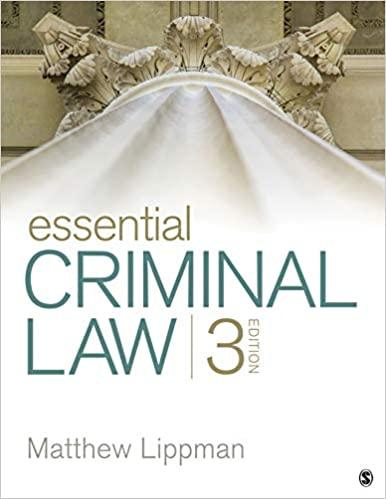Question
Kumar operated a hotel that was destroyed in a fire. Kumar decided to acquire another hotel but knew that he would be turned down for
Kumar operated a hotel that was destroyed in a fire. Kumar decided to acquire another hotel but knew that he would be turned down for fire insurance because of the suspicious circumstances surrounding the fire. He therefore incorporated Big Bend Hotel Ltd and had it acquire the hotel and apply for the insurance. Subsequently, the new hotel burnt down. The insurance company refused to pay when it found out that Kumar was the sole shareholder of Big Bend Hotel. The corporation sued for payment of the insurance proceeds.
The court denied the corporation's claim. It held that the insurance company would not have issued the policy to Kumar. Even though the corporation was a distinct legal person from Kumar, it was being used solely to disguise the real person behind the corporation. The insurance company should be able to disregard the separate personality of the corporation and treat the policy as if it had been applied for by Kumar directly. On that basis, the insurance company did not have to pay because Kumar had fraudulently failed to disclose the prior fire loss.
Based on what you know of this form of business organization, why might you want to also sue the controlling mind of the corporation? What do you think of the threshold of illegal or immoral activity? For example, if a directing mind funnels resources out of a corporation in order to avoid exposing them to liability, is this immoral? Or is it simply effective risk management?
Step by Step Solution
There are 3 Steps involved in it
Step: 1

Get Instant Access to Expert-Tailored Solutions
See step-by-step solutions with expert insights and AI powered tools for academic success
Step: 2

Step: 3

Ace Your Homework with AI
Get the answers you need in no time with our AI-driven, step-by-step assistance
Get Started


